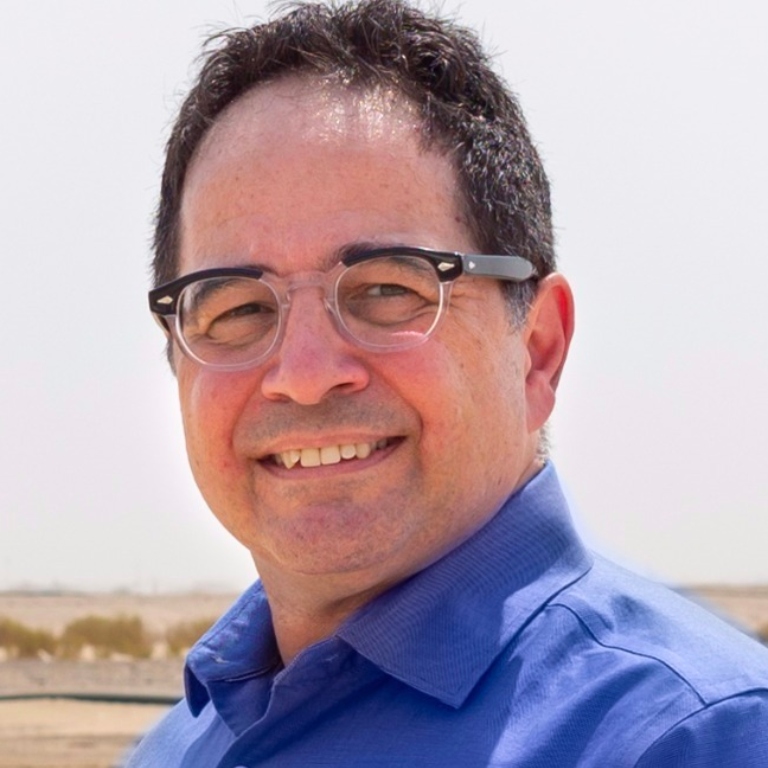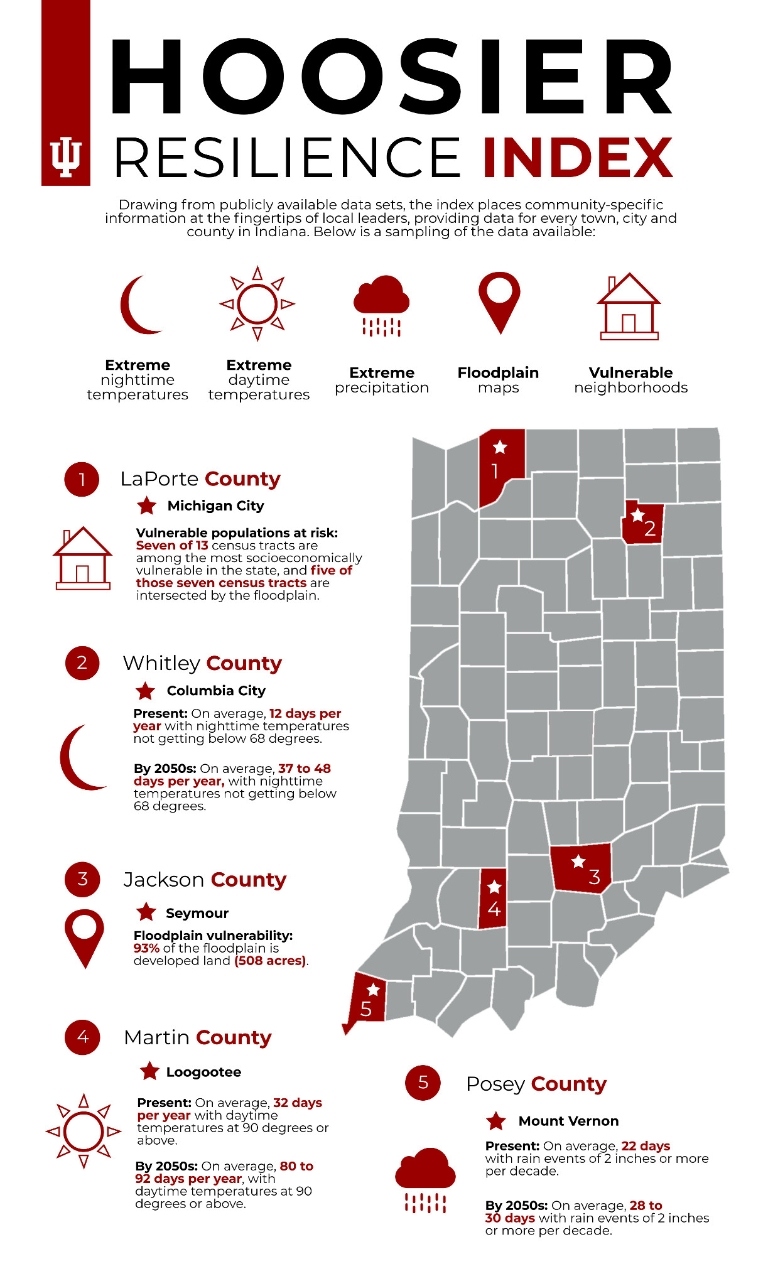The climate is changing in Indiana, but how are local governments responding? This question was the impetus for a research project conducted by a team of students led by IU professor of political science William Bianco in collaboration with the Environmental Resilience Institute (ERI) and the Center for Rural Engagement.
Using the Hoosier Resilience Index, a tool launched by ERI in 2019 to help Indiana communities understand their vulnerabilities to climate change and what they can do to prepare, Bianco’s team worked with several local governments to identify and prioritize community readiness.
“The wider goal is to bring light to what these problems look like in the communities and how they are addressing them,” said Bianco. “This kind of information is vitally important to know what is happening and to guide future policy making.
To begin to understand how local governments are addressing climate change impacts, such as increased precipitation and extreme heat, Bianco’s students helped local government staff work through the Hoosier Resilience Index Readiness Assessment.
The readiness assessment is a series of around 75 questions for local governments to reflect on their current operations, evaluate their community’s preparedness for climate risks, and to identify and prioritize the next steps to increase readiness. Questions are tailored to the specific community and cover a wide range of topics, including economic development, emergency management, and planning and land use.
“Local-level climate resilience is not some grand debate or ideological choice, but rather it’s about how these local governments can take care of their everyday problems like stormwater management, road construction, or maintenance.” Bianco said.
The students interviewed local government staff to answer readiness assessment questions for each community. The interview process encouraged community-led conversations on what is being done and what can be done in each community.
One of the cities that participated was Whiting, Indiana.
“Very early on I was skeptical of the value of participating in the survey, but that changed as we went through the process,” said Joe Stahura, the Mayor of Whiting. “I began to think about issues that I should be looking at over the next 10 plus years. Because the survey shed light on several often overlooked issues, they will now be incorporated into our long-term planning process.”
The process was not only beneficial for the participating local governments, but the undergraduate researchers as well.
“This project has been extremely valuable for me as I have researched emergency management and collected data regarding how Indiana and other states mitigate and recover from climate and weather-related emergencies,” said Sam Waterman, a rising sophomore double majoring in political science and comparative literature. “I have learned so much about research and data collection through the interviews with local officials and guiding them through the emergency management section of the assessment.”
The project also allowed ERI to collect valuable data on what local governments are doing and how the index can be improved, while also helping the institute pursue a core goal of community engagement during a time when in-person meetings and events are discouraged.
“These students, led by Bill Bianco, precipitated ERI’s capacity for community engagement this summer,” said Andrea Webster, the implementation manager at ERI. “They expanded our ability to engage local governments in assessing their preparedness for climate change—an effort that remains important, even in the midst of the pandemic.”
Funding for this work was provided by the IU Center for Rural Engagement, the IU Office of Undergraduate Research, IU College of Arts and Sciences, and Illinois-Indiana Sea Grant.




